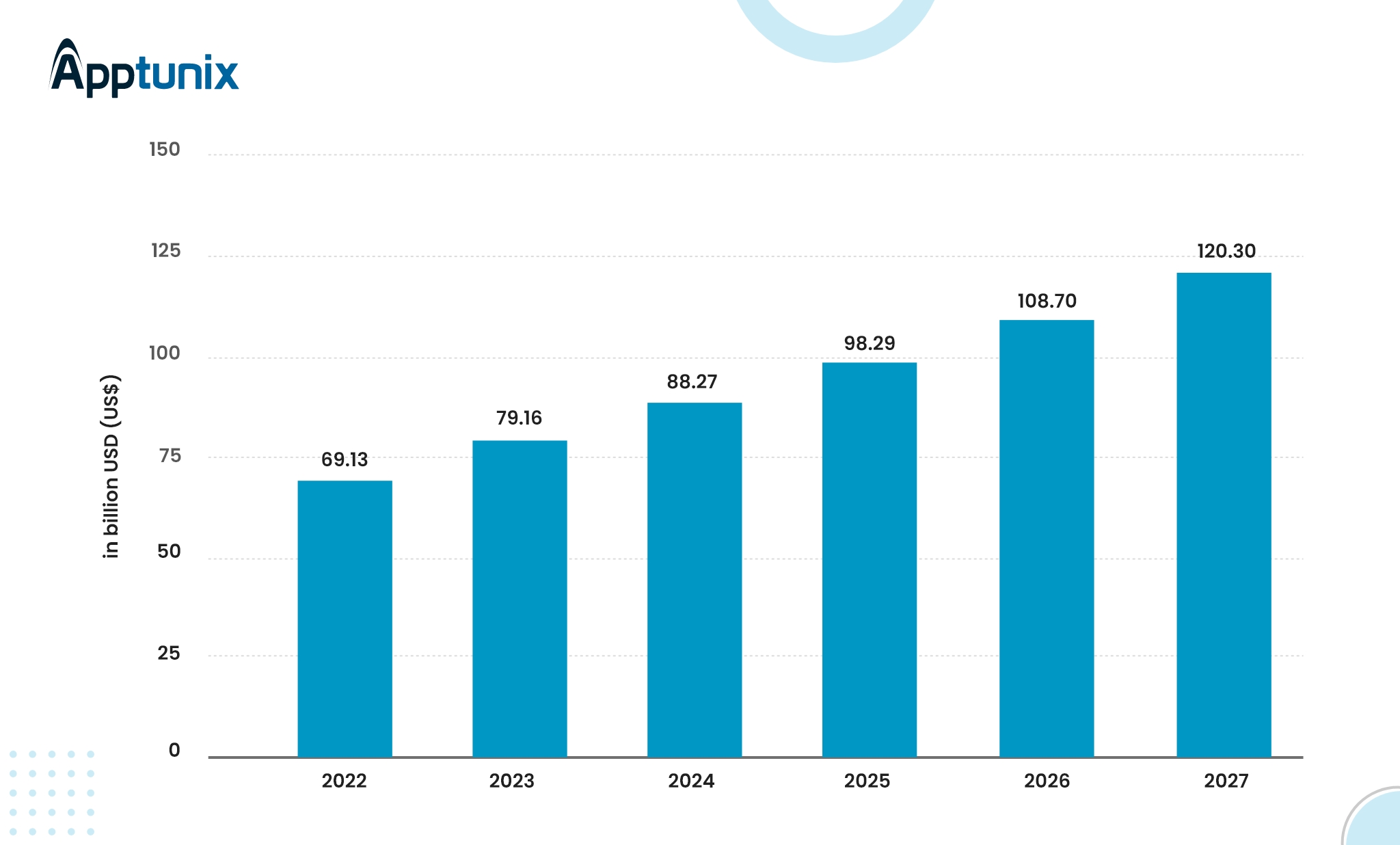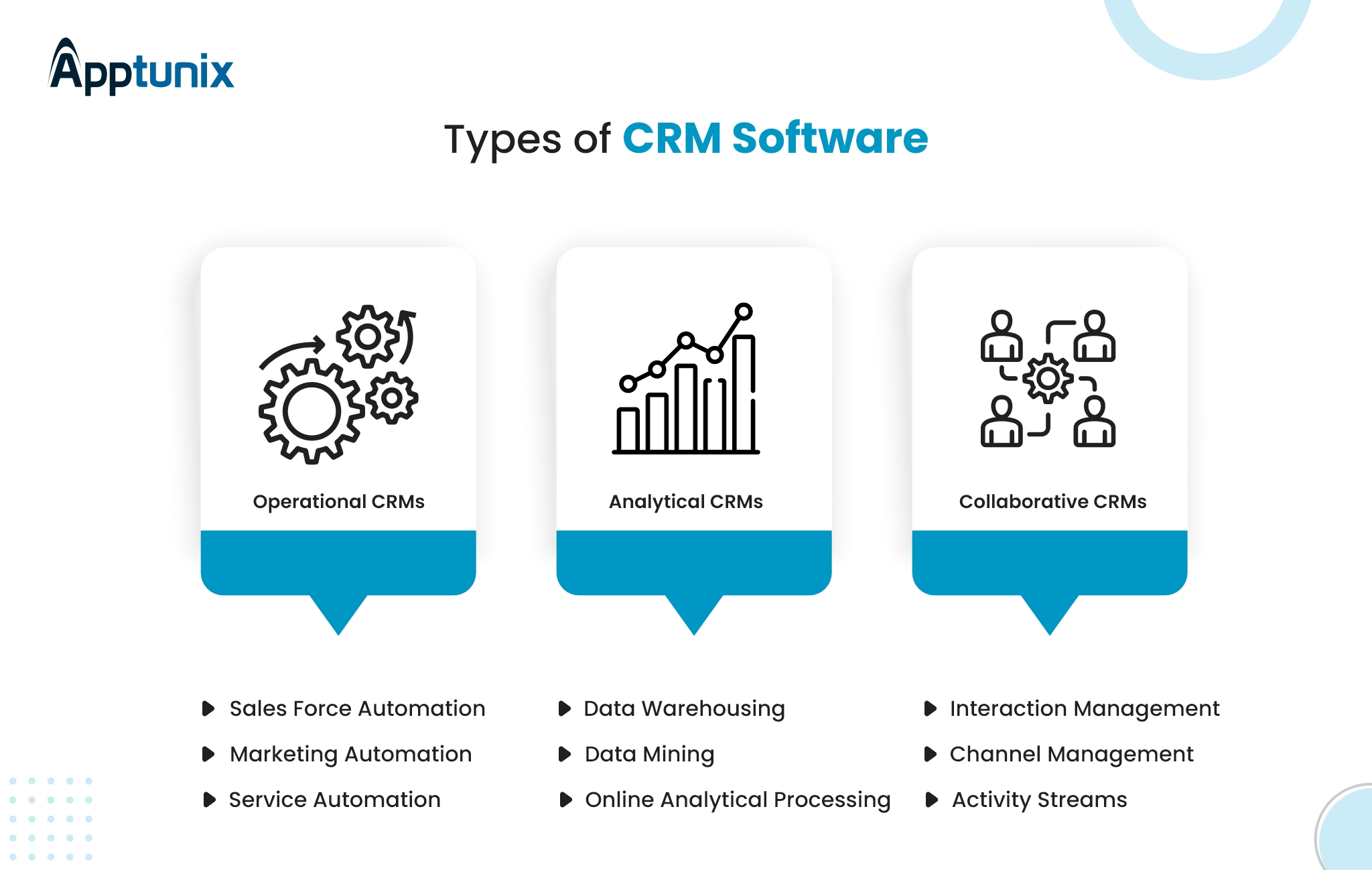Don't miss the chance to work with top 1% of developers.
Sign Up Now and Get FREE CTO-level Consultation.
Confused about your business model?
Request a FREE Business Plan.
How to Develop a Custom CRM Software From Scratch

According to a recent survey, 91% of companies worldwide with more than 11 employees are actively using customer relationship management (CRM) software Needless to say, CRM has become a necessity these days. This is why there is a number of pre-packaged software available in the market that serves the needs of smaller businesses.
But when it comes to specific business requirements or large-scale businesses there is a lot of room for improvement. At some point, you will feel a need to develop custom CRM software like Salesforce, Zoho, Pipedrive, Hubspot, Freshsales, and so on.
Undoubtedly, building a custom CRM system demands in-depth research along with a high budget. So it is better to get an idea of what a CRM is capable of, what essential features are required to be added, and how it is developed.
Well, this blog will guide you on the same. So let’s proceed ahead without any delay.
5 Benefits of Developing Custom CRM Software For Your Business
Before moving on with details it is essential to understand the need for a custom CRM tool. If we go with the current market stats, revenue in the CRM software segment is expected to touch a margin of 79.16bn USD in 2023. Moreover, this revenue is expected to show an annual growth of 11.03% (CAGR 2023-2027). This way it can reach a market volume of 120.30bn USD by 2027.

Undoubtedly these stats point towards the need as well as the bright future of CRM software. Well, when it comes to the benefits they are numerous.

1.Improves Bottom Line
CRM software has a proven track record. According to Deloitte, it has increased lead conversions by 30%, sales by 30%, sales productivity by 30%, customer satisfaction by 35%, rapid-decision making by 38%, and revenue by 25%.
2.Increases Referrals
CRM offers valuable user information that can not only provide you with a solid customer base but also helps you earn free advocacy from your existing customers. Apart from this, CRM lets you understand your customers better. This aids in cross-selling and upselling thus offering you immense business opportunities.
3.Establishes Effective Communication
A custom CRM provides easy access to customers’ data. It also provides crucial information to team members through a unified CRM platform. This means workers will be able to view communication and exchanges between a business and clients. It will not only bring the client to the center but also motivate teams to work together for a joint objective.
4.Cost-Effectiveness
Pre-built CRM software is not designed per your specific business need. So there can be a situation where most of your business requirements will not be covered in a basic plan or there can be many features in the higher version that are not required currently. This can cost you more. The good thing about custom CRM software is, you don’t have to pay for what you don’t need.
5.High Scalability
As CRM is a collection of tools, you are in complete control to create apps for different departments as per your need. It means you will have your internal ecosystem of such apps that are designed for your specific business needs. You can also test the impact of those apps and make necessary changes without any permission. Apart from this, you can make possible upgrades on a timely basis.

6 Essential Features of a CRM Software
Well, when it comes to features it varies from organization to organization as per the need of the hour. But yes, there are some common features that your CRM software must have. So let’s go through some of them.
1.User Base
Your CRM system must have a user/contact base feature to keep records, manage contacts, and store crucial user data.
2.Calendar
The calendar is essential as it plays an important role in communication and marketing campaigns. It also acts as a reminder.
3.Report Generation
This feature generates custom reports for monitoring the work of employees apart from tracking & managing various other activities.
4.File Sharing
Workers must be able to share files, reports, and other crucial data without facing any trouble.
5.Task Management
Managers or other responsible persons must be able to create tasks for processing incoming requests, contacting clients, and other purposes.
6.Access Permissions
There can be a need to share the CRM system between different departments, so data access permissions become necessary.
Advanced Features of a CRM Software
Apart from the basic features you can add many features to your CRM software as per your business requirement. For example, you can go with interaction tracking & recording, email marketing, mobile access, pipeline view, invoicing, integration with other 3rd party software, chatbots, lead scoring, social media integration, and so on.
5 Steps to Build CRM Software From Scratch
Like any other software, CRM software has a complete development cycle that demands a clear-cut idea of the current as well as future requirements and how you can achieve them. Well, let’s understand the whole development cycle via some steps.
Step 1: In-Depth Research
You are required to find the best concept for your idea implementation. It is better to be clear about the purpose of the CRM, its type, legal security requirements, user roles, and so on. Generally, there are three types of CRM software available in the market that you can choose from.

1.Operational CRM
It deals with automation and streamlining of business processes and is used for increasing working efficiency.
2.Collaborative CRM
It aims to improve teamwork and communication through a transparent data-sharing environment.
3.Analytical CRM
Its purpose is to assist in planning. It provides insights, stats, and analytical data.
CRM is a complex system that demands in-depth research. So it is better to understand top CRM systems. This will provide you with a better understanding of specific requirements.
Step 2: Designing
Once you are clear with your requirement, there comes a designing phase where the CRM design is created and tested. It all starts with the brainstorming of effective UI/UX flows based on the existing user personas and use cases. Then the best variant is selected. After selection, the interactive prototype is made and tested for its worthiness.
After testing, a visual concept is prepared using the brand’s guidelines. Once approved by experts and the client the complete graphic design is prepared.
Step 3: Development
This is the main stage that decides the fate of CRM software. So you are required to go with a top software development company that has a creamy layer of experienced software developers along with an advanced tech stack to offer you the best in the market.
The whole development process is based on the development plan where design, prototype, and workflow diagrams are presented. After that, the developers transform the mockups into a product using agile software development methodology.
Step 4: Testing
Once the CRM components are ready there comes the testing phase to ensure that various parts work together seamlessly. This not only reduces bugs and glitches but also makes sure that the software is finally ready for launch.
The testing is carried out taking into account the requirements defined in the SRS document. Apart from this, the focus is laid on meeting international quality standards.
Step 5: Delivery & Support
This is the final stage where the complete product, intellectual property rights, source code, and other associated documents are handed over to the client. Apart from this, once the CRM software goes live it remains under maintenance for any defects and improvement. The time period for maintenance and upgradation can vary as per mutual agreement.
Partner With Apptunix to Build a Custom CRM System
Developing custom CRM software is a good decision in case you are looking to increase revenue. It will not only satisfy your organizational needs but will also offer a piece of mind. All you need is a top software development company that can understand your business requirements and offer full-fledged software solutions.
Apptunix has an extensive background in CRM software building for various industry verticals. Our expertise can not only help you with the latest trends but will also aid you in prioritizing functional requirements to build a custom CRM system that meets your specific business needs.

Frequently Asked Questions(FAQs)
Q 1.What is the Minimum Cost to Develop Custom CRM Software?
The minimum cost to develop a custom CRM with average features is about 20,000 USD. Rest it all depends upon the module and features you want as per your business requirement. The development cost can even go as high as 200,000 USD or more.
Q 2.How Much Time Does It Take to Develop Custom CRM Software?
The minimum time to develop a custom CRM software is about 2 weeks. It can even take up to one year or more depending upon the module and features as per your business requirements.
Q 3.What Are the Benefits of Developing Custom CRM Software?
Custom CRM software not only saves you money but also reduces the communication gap in-between as well as outside the organization. Apart from this, it also provides reports and analytics that can help to create a solid customer base.
Q 4.Which is the Top CRM Software Available in the Market?
Salesforce, Zoho, Pipedrive, Hubspot, and Freshsales are the top 5 CRM software systems available in the market.
Rate this article!
(2 ratings, average: 5.00 out of 5)
Join 60,000+ Subscribers
Get the weekly updates on the newest brand stories, business models and technology right in your inbox.

With about 7 years of experience (Technical & SEO Writing) and a solid technical background (Master of Technology – E.C.E with Wireless Communication as specialization), he has worked both as a freelancer and on a regular basis for prestigious IT organizations across the globe. Whether it’s Blockchain, Metaverse, Artificial Intelligence (AI) & Neural Networks, Machine Learning (ML), Internet of Things (IoT), Cyber Security, Cloud Computing, 5G Technology, or some other trending technologies he has written whitepapers, eGuides, blogs, technical documentation, guest posts, and so on for almost all. Here at Apptunix, he is generating B2B content.

Telemedicine 2.0 - A Comprehensive Guide On What Healthcare Providers Need To Know?
Discover how the latest advancements like Artificial Intelligence in telemedicine are reshaping patient care. This comprehensive resource offers insights into the key trends and innovations driving this shift, providing valuable knowledge for healthcare professionals looking to stay ahead.
Download Now!Take the First Step
Towards Success!
Master app development with a
30-day FREE trial of our premium
solutions.


















